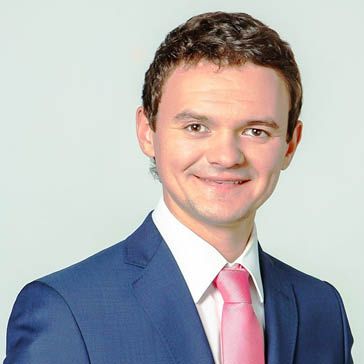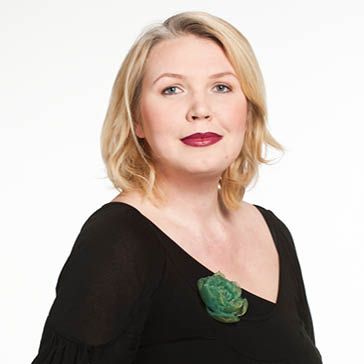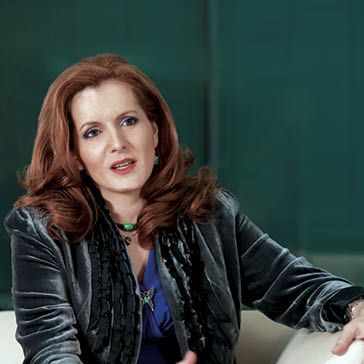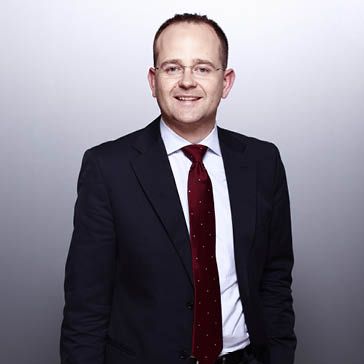Irina Novikova is the Head of Legal of Groupon responsible for the Russian and Ukrainian markets. After graduating from the Law Faculty in St. Petersburg, she first worked in the securities market – a field that she describes as being “very trendy in the country at the time.” She then proceeded to work in a number of industries leading up to her joining what she describes as the fascinating world of a young, flexible, fast growing e-commerce company.
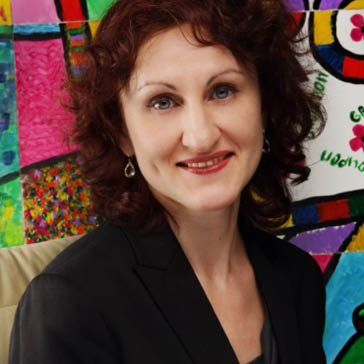
Irina Novikova, Head of Legal Russia & Ukraine, Groupon
CEELM: You have worked as an in-house counsel almost throughout your entire career. What do you enjoy the most about this side of things?
I.N.: Early on in my career, I wanted to work in what I felt was a “real sector” of the economy. I did try working as a freelancer/external counsel but I soon learned that I was an in-house lawyer at heart. The difference in my mind is considerable, primarily resulting from the fact that, as an external counsel, you have to deal with specific problems that are passed on to you by the client. In contrast, working in-house allows you to focus a lot more on prevention. I am very big on tackling issues proactively before they get a chance to impact an organization.
It is also great to be able to interact with the other business functions of a company. You encounter considerably different mindsets and different angles/perspectives of looking at things. Working as an external lawyer will rarely allow you to look at the world around you without your “legal glasses” on.
Last, but definitely not least, you get to feel close to the business. You feel like you are a part of something great that creates value around it.
CEELM: What does a typical day look like for you as the Head of Legal of an e-commerce business in Russia? What takes up the most of your time in the office?
I.N.: The first thing I do in the morning is address my inbox. Our company is quite widespread geographically, meaning I tend to have a full inbox by the time I get into the office. Based on that I plan and prioritize my day – both for me and for the rest of my team. Of course, there are also quite a few of regular administrative tasks – primarily basic housekeeping – that need addressing and I try to get those out of the way as quickly as possible. These can be anything really from signing off on time sheets to basic reporting for the global legal teams. After lunch I tend to look back at my day to make sure there isn’t anything particularly important or urgent that I let slip through.
In terms of actual work carried out, I tend to be very hands-on with my team. All the lawyers on our team are involved in reviewing contracts regularly or attending courts as needed though, naturally, I tend to tackle the bigger or more strategic aspects.
CEELM: How is your in-house team designed? Do you specialize your individual lawyers on specific areas or are they all generalists?
I.N.: We have a fairly small team – there are three legal team members on site. I see it as a trend to shrink the size of in-house teams. I would say we are all generalists. We use a group e-mail address where we receive requests for support regularly and, based on the morning exercise that I mentioned, we coordinate on who will take over what issues/requests.
CEELM: You mentioned you believe there is a growing trend to shrink the size of legal teams. What do you believe drives this? Is it because of budgeting considerations?
I.N.: I do think that part of it is the economic reality, indeed, the economic climate is rather challenging at the moment, both in Russia and globally. But I think it is more a matter of efficiency than anything else. Technology for example, has greatly increased the work capacity of smaller teams than it was feasible to provide in the past. For example, based on input from our US headquarters, we have switched to electronic signatures of documents. One year into using this feature we have found that it greatly reduces the workload on legal teams – despite the slightly increased risk resulting from the fact that the Russian market is still very big on having a paper trail. Even having pre-reviewed templates for contracts built into our systems which our sales force can simply use helps a lot as it means a lot less time spent on contract review. We then really only need to spend time on complex and non-standard deals – which are relatively few in a company such as Groupon.
CEELM: As a lawyer, what best practices have you developed for communicating effectively with your colleagues from other business functions (IT engineers, finance teams, etc)?
I.N.: Over the years I realized that face-to-face communication is critical. It helps you convey your logic, not just the request, if you take the time to talk to stakeholders directly. It lets you explain your train of thought that allows you to position yourself as someone focused on solutions rather than risk breaks.
The biggest challenge for a graduate fresh out of university is also his/her zeal in taking risks. A lawyer needs to learn quick that there is no business without any risk whatsoever and, if all you do as an in-house lawyer is to try to push that into other business functions, you cannot built a relationship where you are seen as in the “same boat”, meaning you lose internal impact whenever there is something important you need to push through.
CEELM: What are the main legal aspects that an e-commerce business needs to handle on a regular basis in Russia?
I.N.: As is usual with new industries, the main issues always revolve around blanks in legislation or too many grey areas. As an in-house lawyer in such an industry, you end up having to navigate using principles, or the spirit of law, rather than the letter of law because the letter is simply not there yet.
CEELM: If you need to outsource legal work, what criteria do you use in choosing your external counsel?
I.N.: For me it is very important that we understand each other in the sense in which I am very demanding with regards to my external counsel. If I feel at any point that an external counsel is acting superficially and not taking the time to provide sophisticated advice, it is very unlikely that I will work with such outside counsel in the future.
The second is a commercial consideration. In a world where no one pays for billing hours anymore, I expect an external counsel to be as open and predictable in terms of the fees we can expect as reasonably possible. Of course, aspects will come up that will bump up the price tag from the original estimates, but we need those to be communicated in due time, and explained, not surprised by them when we receive the invoice.
CEELM: Looking back at your career, what are you most proud of? On the flip side, if you had to point to one regret, what would it be?
I.N.: I think every lawyer has his moments or deals that they look back to with pride and I do think that happens to lawyers more than in most professions. For me, one particular project that I worked on I felt pushed my professional limits, and I take pride in having managed it successfully. It was a squeeze-out of minority shareholders that resulted from a privatization deal. When it was privatized, shares of a plant went to a lot of its workers, meaning that, when the majority shareholder wanted to acquire the full company, over 200 deals had to be made. That took a lot of coordination, negotiations, and paper work and I pride myself on having spearheaded it.
If I had to point to one regret, I would probably skip coming back to the industries that I feel I have exhausted professionally. I am very happy working in e-commerce and I find it truly interesting and I regret not having moved into the sector earlier.
